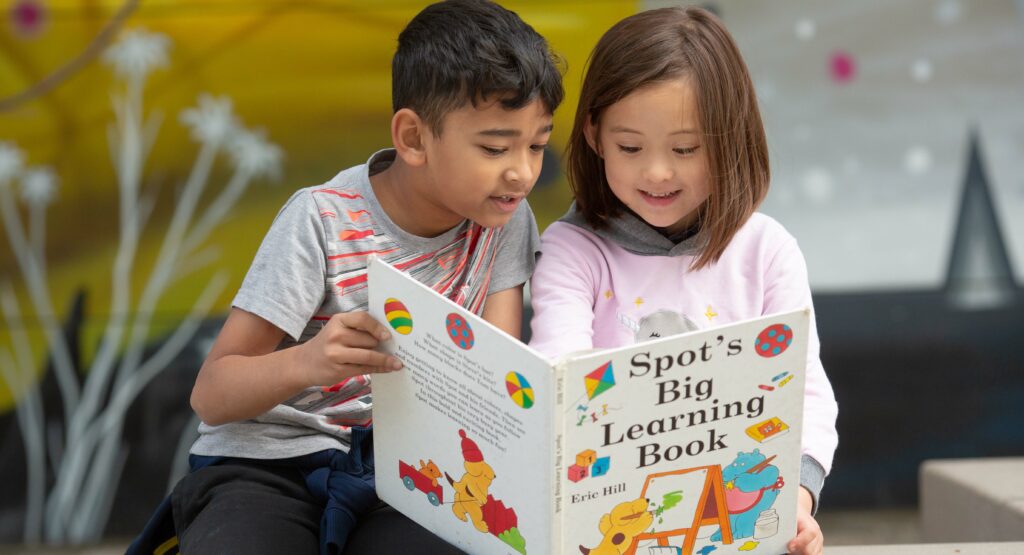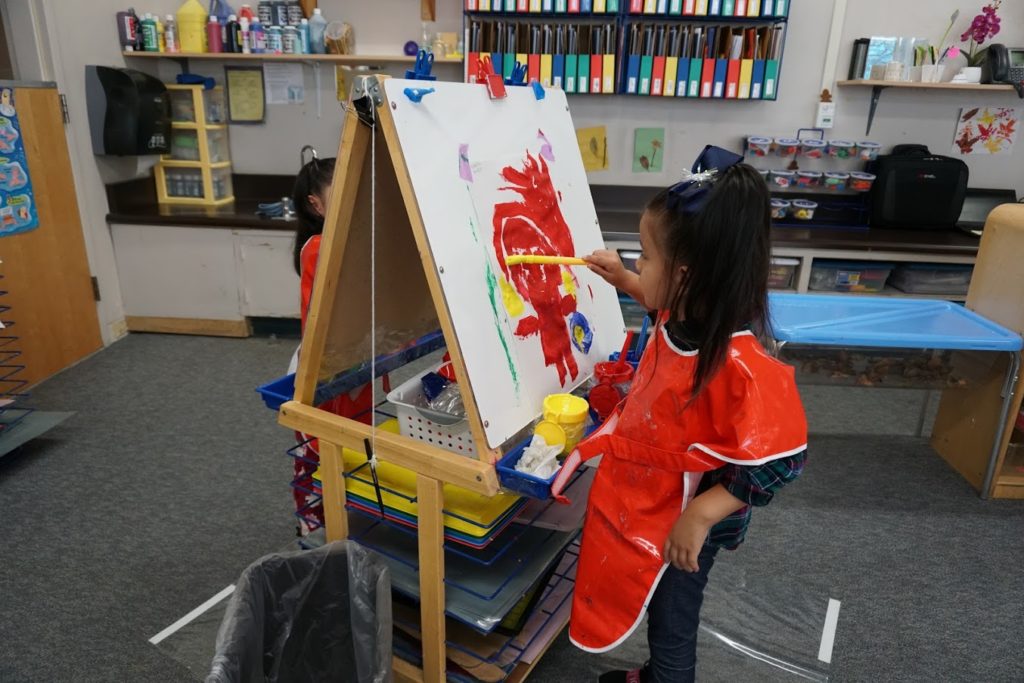
A first-grade boy and his kindergarten friend read together on a bench outside. Credit: Allison Shelley for American Education
Credit: Allison Shelley for American Education
Attention must be paid. Amid the worsening literacy and numeracy crises in our schools, Doug Lemov, former teacher, education expert and author of the bestseller “Teach Like a Champion,” believes that there should be far greater awareness of what the research says about how the brain works, that parents and teachers should know how kids learn best.
Funny, warm and unassuming, Lemov recently took a few minutes away from his latest book to hold forth on how we can better connect what we know about cognition with what we do in the classroom. These insights into the science of learning shape the way he thinks about everything from focus to engagement, from the use of cellphones at school to why kids should read entire books, and not just passages, to fuel reading comprehension.
Is it possible that diminished student focus is part of why test scores have cratered? Could it be one cause of the literacy and numeracy crises?
Yes. On two levels. Attention is always the currency of learning. To learn something you first have to pay attention to it and sustain that attention. When attention is fractured, both learning and performance are lowered. And, of course, a habit of paying lesser attention reduces long-term learning. So, students both learn less and can produce poorer versions of what they do know when their focus is diminished.
Why might cellphones and other devices in the classroom diminish focus?
They are designed by the sharpest minds in society to do just that. They are designed to disrupt and reroute attention to the things on your phone. That is the business model: to get eyeballs. To do that you have to create a malleable consumer.
And humans are inclined to respond to new and unexpected stimuli. We evolved to do this because the new and unexpected is often — or was often — important in terms of survival. Hear a new noise in the woods you’ve never heard before? If you want your progeny to pass down into modernity, you’d better pay particular attention.
We are also especially responsive to “variable, unpredictable rewards” —we want affirmation —we are wired to be social because we are weak as individuals and could never compete with other species and only survived evolution because we banded together.
Group formation is an evolutionary imperative. We are hypersensitive to whether we are still liked and loved by the group because if not, we know we are at risk. Unpredictable and variable rewards hack that system. We’re always wondering if we’ve gotten those “likes” … and when we do, we get a little dopamine hit in our brains. And, in the end, the brain is neuroplastic. It wires how it fires. If you are constantly distracted, constantly seeking affirmation, you come to need the distraction and the affirmation, to be wired to expect it.
First you need your cellphone close to you all the time, but after a while your cellphone is within you. Its influence is wired into you even when it’s not there.
And would removing cellphones also help build student engagement?
It would help students to pay far better attention and to rebuild attentional skills. And it would reduce the anxiety of the shadow world of social media. My daughter’s school banned cellphones this year. She was not happy because she loves to listen to music. And she suspected I might have had something to do with it. So she was upset the first week. But on Friday she came to me and said: “Dad, don’t let this go to your head, but I can’t believe how much happier and less stressed I am without my phone. It’s just like this thing that was always on my mind is gone.”
What is important to understand about cognition, how working memory functions, for example, when teaching kids how to read or do math?
Working memory is the brain’s ability to think actively and consciously about something. It’s definitely a superpower, and its effectiveness is directly tied to attentional skills and focus. But learning is, a cognitive scientist would say, a change in long-term memory. In fact, we don’t learn most of the things we think about. We forget instead. And again, attention is one of the key drivers of the process of encoding — which is getting what we think about into our long-term memory.
Why does background knowledge matter?
Reading comprehension is not a set of formalistic skills. Practicing making inferences about “Tuck Everlasting” won’t help me make inferences about “Little House on the Prairie” because resolving the ambiguity in any text demands background knowledge. You make the inference that something special is happening in town when you are reading “Little House” because the girls are taking baths on a Wednesday evening. And if you know that people on the prairie in the 19th century only bathed for church on Sunday and on special occasions — because taking a bath required you to bring water up from the well and chop wood to heat it pan by pan, and so it was incredibly labor intensive — if you know that, you make the inference, and if you don’t, you don’t. So once students are fluent readers, background knowledge is the single biggest influence on comprehension.
Why is it important for kids to read whole books, instead of just reading passages, to foster reading comprehension?
Life is complex. A book is a long-form reflection on a topic. A narrator almost never sees the world at the end the way he or she does at the beginning. Understanding the world takes 200 pages, and that is actually a better reflection of the humility and depth it takes to navigate the world than the belief that we can tell the story of our lives fully in radically truncated forms.
You can only read fully if you understand “voice” … who is this person speaking to me, and how do they communicate? What are the gaps between what they say and what they are? A long-form relationship with a sustained narrative voice is necessary for the deepest forms of comprehension.
Why do we read less deeply online? If there is less brain activation from reading on screen, as some research suggests, why don’t we encourage kids to read printed books?
I’m not sure why we don’t, but maybe we need a short pithy phrase to remind ourselves that learning and reading are better without screens. So my phrase is: high text; low tech.



